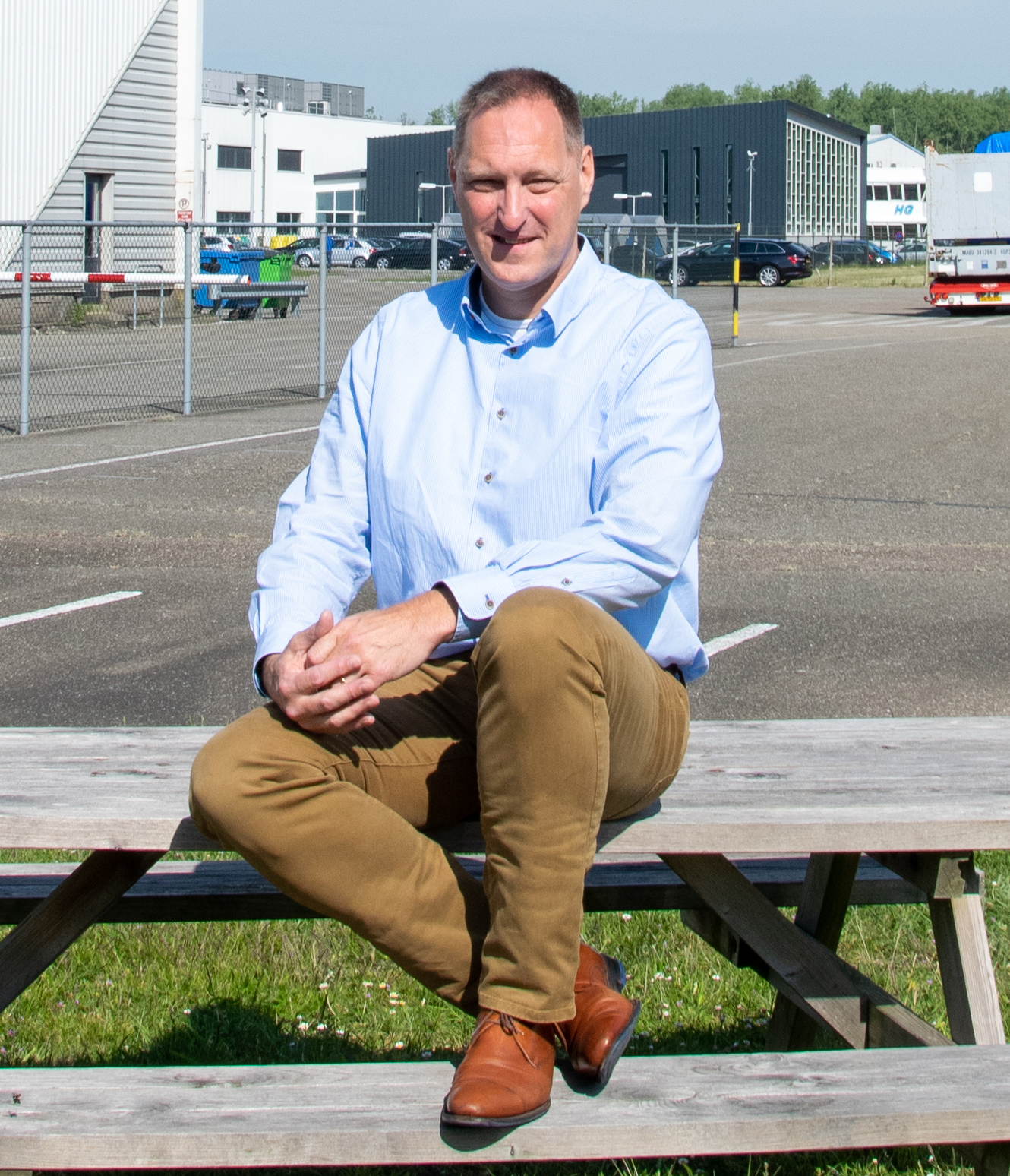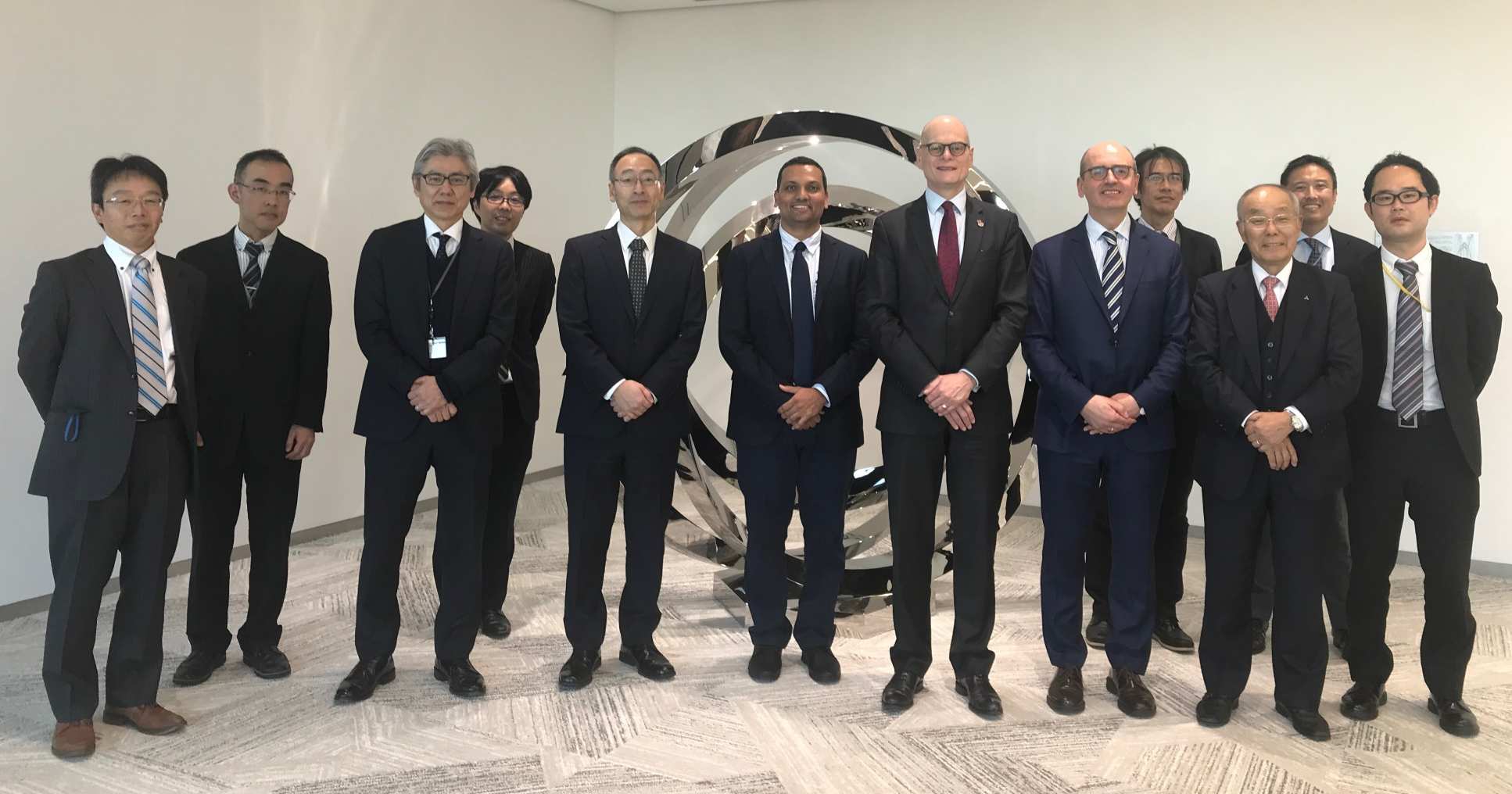Interview with Stijn Rooijakkers, Manager of HR
When did you start your career at MTEE?
I joined MTEE in 1998. At that time, it was still referred to as MHI Equipment Europe BV (MEE). I was working in Almere for another company and got to know about MTEE through some mutual contacts. I was asked to replace one of the consultants at MTEE who left at that time.
Back then it was a small company with only 160 employees. The company consisted of three divisions: Engine, Turbocharger and Air-conditioners. One of my first projects was to support the Air-conditioning Division becoming an independent business unit in the Netherlands. Although completely different from our other businesses, Corrugating Machinery Division moved to our location in 2000. They separated from our group company in 2007, and are still located here in Almere.
In 2003, I left the company to seek another challenge but returned in the same year. The turbocharger business was really starting to take off at this time. The HR department needed a complete restructuring because of the growth and we added recruitment and training to the department functions. When the HR manager left in 2005, I took over his position. He was also responsible for the general affairs department and in 2006 I was asked to take over that role as well.
What is your background?
Like many HR managers, I don’t have a direct background in HR. After high school I went to the University of Groningen to study econometrics. I also did a new HBO study programme in Haarlem that was about small businesses for entrepreneurs. After my education I started working for a logistics company that helped companies and people move around the world. I started out by working in the warehouse. When an administration job came up in the office, I got it. This was the start of my HR career. I was helping with bookkeeping, financial planning, etc., and when the accountant left, suddenly I was the only one with knowledge about the salary administration system. I thought this was a good time to expand the HR functionalities in the company, so I set-up a personnel affairs department, a new salary administration system and a scanning system for distribution. To get a better understanding of HR, I did a HBO in personnel management in the evenings for the next four years. All this experience was very useful when I joined MTEE in 1998.
From a HR angle, how have you experienced the change in the company over the years?
When I started working for MTEE, we had less than 200 employees – 80% worked for the engine division and 20% for the turbo division. However, in the following years the turbo department grew – or rather, it actually exploded. This suddenly made the recruitment function extremely important. We had one year when we hired around 300 new employees. I believe we interviewed more than 1,000 candidates and reviewed more than 6,000 applications. This was a huge task for our department. We also introduced several new functions in the HR department, such as the training group, recruitment, communication, the health, safety and environment team and a compliance and legal team.
What have been the biggest challenges for HR with the coronavirus crisis?
We’ve noticed in the past few weeks that production has reduced a lot. Almost all European car manufacturers stopped their production, so we’ve had to react to that. This has meant, for example, that we’ve had to reduce the flexible staff in our production to zero. At HR, we’ve had to make the arrangements with Manpower, our recruitment agency, to return staff temporarily. That was very intensive and also very sad to have to make this decision. However, we intend that everyone will return once production is back to normal.
Our parent company in Japan is very interested how we are coping with the coronavirus. Everyone wants to know what we are doing and how we are doing it. It sometimes calls for fast decisions. Many of these decisions have a connection to the HR department – introducing social distancing, changing canteen times, taking measurements in the production areas and the offices, etc. These are some of the challenges we face at the moment.
How do you think the coronavirus crisis will change MTEE?
We have a situation now where many employees are working from home. I’ve noticed how people have found new ways of working with each other, and new ways of conducting meetings. Time and place is not so important anymore. When I speak with other managers, they are all proud to see how well people are coping with the situation and finding ways to get things done from a distance. Therefore, I expect different working schedules will be put in place after the coronavirus crisis. I also expect there will be a continuation of social distancing in the future. You already see people are not shaking hands anymore, and everyone will be more aware of the risk of spreading an infection in general.
What do you like most about MTEE?
What I like about MTEE is that I’ve had many opportunities to develop myself. For us working here that may seem normal, but it is unique. Since I was part of building up the HR department, I have had the opportunity to create new teams. Having the opportunity to make changes to the company makes it a very motivating place to work.
Furthermore, the fact that it is a very international company also makes it interesting. It is a very easy place to adapt to as a foreigner. A mix of more than 40 different nationalities can sometimes create frictions, but honestly, you see the same in a group where only Dutch people work together. If you want to work and have capabilities, you are always welcome in this company. I promise you that it will never be boring.
What do you see as the future challenges for your department?
As globalization continues, we experience more collaboration with our group companies. We are now working towards a new ERP system and are collaborating with MHI to implement a single global HR system. Furthermore, big data is becoming increasingly important, including to HR. We need more people trained in data management. The HR role is also changing towards more of a focus on metrics, analytics and prediction. Connecting data from each department will provide many insights and help decision-making regarding future steps. We should not be afraid of data, digitalization, and global influence, but see it as an opportunity. It is a challenge I look forward to taking on in the future.





